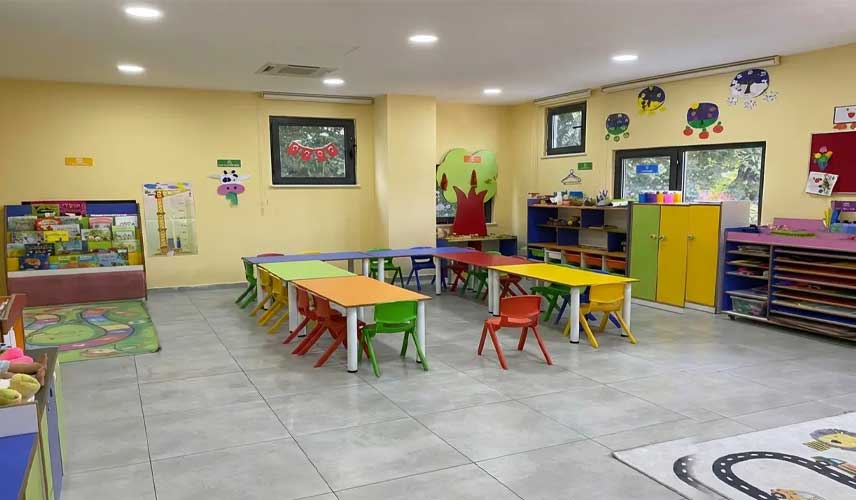
7 Things You Need to Do to Raise a Well-Rounded Child

Parents who want to raise a well-rounded child should create a solid support system at home, so their children grow up satisfied with their achievements and passions. The goal of parents should be to help the child feel competent and secure, and to assist in developing a sense of purpose and passion. The in-home education provided before school life begins is extremely important for child development.
If you want to enhance your child's academic performance by developing their learning skills, you should act consistently, selflessly, and patiently. The following 7 techniques can help you on the path to raising a balanced, healthy, and satisfied child.
1. Encourage Their Personal Skills
Every child has unique innate talents. These traits can also emerge in a school environment, but as parents, you can also notice and support your child's personal skills.
Do not underestimate the power of unstructured play. Activities like playing hide and seek in the garden, dancing in the living room, or following a bug provide opportunities for intellectual, personal, and physical development. It can also be beneficial for you to find a few hobbies. Seeing you try something new can inspire your child to do the same.
2. Praise and Acknowledge Their Efforts
Instead of labeling your child with adjectives like "Smart" or "Talented," prefer to praise them for their efforts in any area. People with a fixed mindset are often reluctant to take on challenges, as they believe their successes come from innate abilities. Those with a growth mindset are more willing to face hard work and challenges because they believe in the benefits of acquiring new skills.
3. Respect Different Learning Styles
Just because you need complete silence when preparing a report or writing an email does not mean your child needs a quiet environment to do their homework. To identify your child's unique learning style, you should pay attention to the conditions that allow them to learn most effectively.
For example, if your child in the elementary age has a strong visual memory, you might consider using flashcards to help them learn their multiplication tables. If your child has a good memory for people, you can help them connect words with the names of relatives, friends, or famous people to enhance their vocabulary.
4. Read, Read, Read!
Many experts recommend starting to read books with children at a very young age. Having books at home and reading together with preschool-aged children encourages their language development and reading skills. It also helps them succeed in their school life.
Even if your child is not at an age where they can understand everything you say, read something to them every day. This way, they learn to notice the rhythms of language and begin to develop a vocabulary in their minds.
A study conducted in the UK has shown that children aged 5 whose parents read to them every day may experience fewer behavioral problems at school.
5. Have Dinner Together
If you are not a master at cooking, do not worry. For conscious parents who want to raise a well-rounded child, dinner has benefits beyond just eating something nice from the child's perspective. At the table, open informal conversation topics that will help develop their thoughts, feelings, and expression. Ask them how their day went, what they learned in science class, and how they will prepare for the test they will take at school the next day.
A study conducted by Columbia University has shown that children who sit at the dinner table with their families at least 5 days a week are more likely to achieve higher grades at school and less likely to experience eating disorders.
If everyone at home has a different schedule and it is not possible to enjoy dinner together at the same time, try to find another meal where your family can sit together and talk about the day's activities. This could be breakfast.
6. Things to Do at Bedtime
It is beneficial and effective to set a bedtime for your child and consistently enforce this rule. However, it is better to turn off the computer or television at least half an hour before this time. If your child uses a cell phone, you should take it away from them half an hour before bedtime. More than half of children use their phones even after the lights are out, and their parents are unaware of this.
Even sleeping just 1 hour less than necessary can lead to a decrease in children's cognitive abilities the next day. A student who has an important exam the next day will perform lower than they normally would if they did not get enough sleep.
7. Hug Your Child, Embrace Them
Hugging your child a few times during the day helps reduce any tension they may feel. Neglected children who do not feel loved are more prone to chronic stress that affects the parts of the brain responsible for focus and learning.
A study published in the American Journal of Public Health in 2005 showed that affectionate touch from another person can alleviate emotional, physical, and behavioral symptoms associated with stress in a person's body. Hugging your child will be beneficial not only for them but also for you.
Child Development and Education Other Content in the Category

Child Development and Education
Ways to Develop Fine and Gross Motor Skills in Children

Child Development and Education
First Day at Kindergarten: 12 Tips to Ease the Transition

Child Development and Education
6 Tips for Success

Child Development and Education
8 Reasons for Attention Difficulties in Children

Child Development and Education
Problems Related to Homework and Solutions

Child Development and Education
15 Life Skills Your Teen Should Acquire

Child Development and Education
35 Positive Messages Your Child Needs to Hear

Child Development and Education
10 Characteristics of Good Enough Parents

Child Development and Education
Child Development: The First 5 Years

Child Development and Education
7 Things You Need to Do to Raise a Well-Rounded Child

Child Development and Education
14 Effective Methods to Improve Children's School Success

Child Development and Education
8 Tips for Positive Parenting

Child Development and Education
10 Ways to Communicate Well with Children

Child Development and Education
How Does Changing Schools Affect Children?

Child Development and Education
